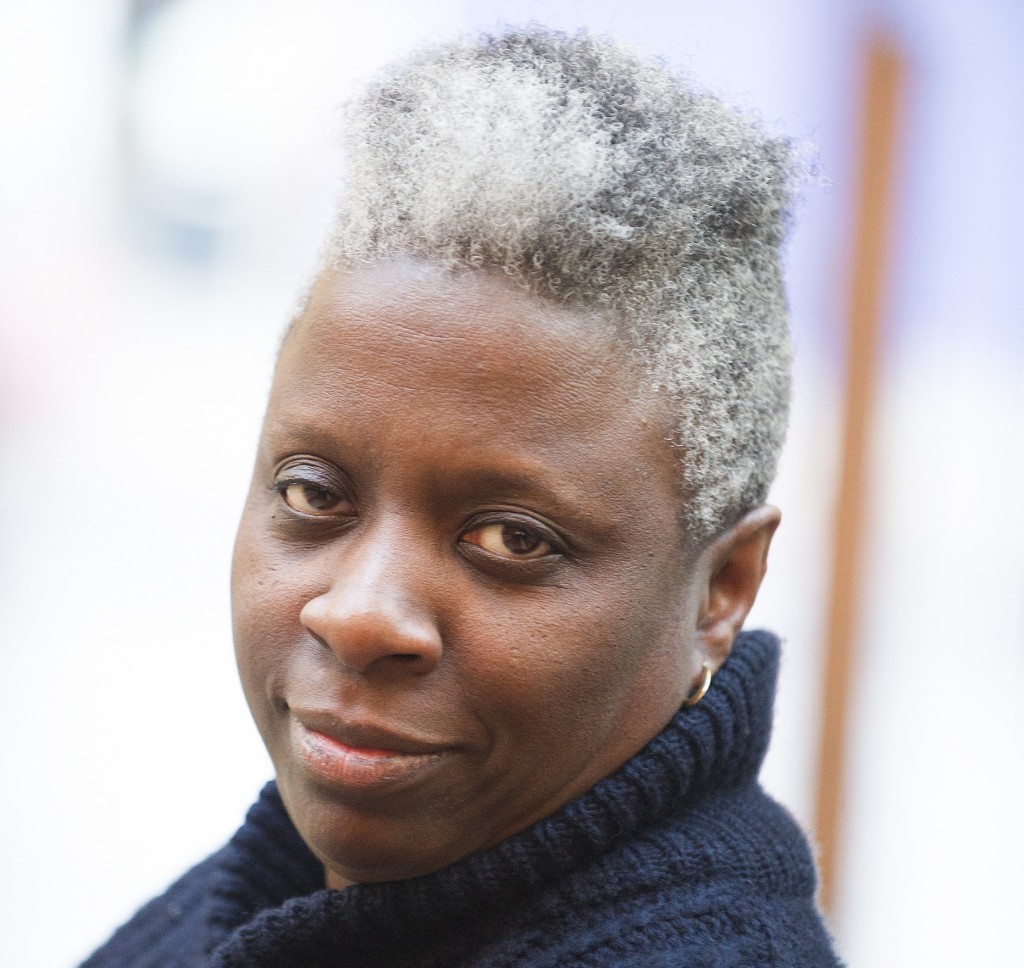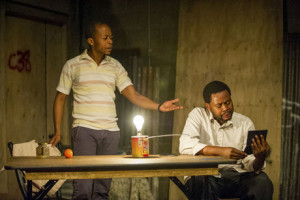Dave Woodhall speaks to a theatre pioneer.
Dawn Walton is artistic director of the acclaimed Eclipse Theatre Company, the only black-led company regularly touring the country. Their production of the Apartheid South African-set Sizwe Bansi is Dead performs at the Mac this week, and she told us about it.
“The play was developed forty years ago, at the heart of apartheid, by a white director, Athol Fugard, and two black actors, John Kani and Winston Ntshona. There was no such thing as black actors in apartheid South Africa so they were registered as servants to Athol in order to get them work. They took stories from their lives and everyone around them about life under apartheid. They took the play to the Royal Court Theatre, travelling under Athol’s passport, they went to America, then they got back to South Africa and the actors were thrown into jail for a while.
“A young British director Matthew Xia picked up the play and used it for his genesis Young Directors Award. He found two extraordinarily good actors, Sibusiso Mambo and Tonderai Munyevu, who have built a wonderful production that we’re touring across the UK.
“The story itself starts in a photo studio where a very proud Mr Styles introduces the audience to his world as a township photographer. He tells us the story in a joyous, uplifting way about how he came to have his own business then there’s a knock on the door and in walks a gentleman who needs a picture to send home to his wife. Through the course of this activity we discover that this character has had his life turned upside down by these passbooks, which every black South African at the time had to carry and which governed their lives – they told where they could live, where they could work, where they could go to school. These passbooks governed lives. Will this man give up his own passbook to change his life?”
How has the tour gone down so far?
“The response has been overwhelming. We did six weeks at the Young Vic, which was sold out with rapturous applause every night, we’ve been to Plymouth and Hull where there was a different demographic but and it’s still going down well. Eclipse is about the audience. We appeal to regular theatre goers but we also attract people who don’t regularly go to the theatre. Around a third of our audience is going for the first time.
“You go along thinking the shows going to be a bit dour and oppressive, but the way black South African voices lift to the sky that’s what the play is about. It’s joyous, it’s about the human spirit. You laugh far more than you think you’re going to, there are such wonderful performances. The second half of the play is slightly darker but there’s such an uplifting ending, audiences love it.”
On the surface, there doesn’t seem much relevance to the present day.
“Hard times are hard times regardless of the regime. Paying your bills and what you do to survive, the compromises we have to make sometimes, whether it’s working zero hour contracts or doing all sorts of things. You may not be judged so much by the colour of your skin now, but you can be judged by your class, by the clothes you wear. We have refugees who walk round with passports themselves, that’s no difference to South Africa. There are lots of people living in oppressive circumstances who fight their way out. People who work with those who might be dropping off the get the play, people who have a social conscience get it. They get hard times and survival.”
You’re from South London, so you grew up around the Stephen Lawrence case, and more than twenty years later we have a national election where the most popular party has a prominent member saying Lenny Henry should go to live in a black country. What do you feel when you read stories like that – it must seem as though nothing has really changed.
“It’s an interesting position to be in. It’s a conversation I have constantly. I used to get angry about growing up in an area where there was National Front graffiti, you had the BNP bookshop up the road, but the most useful thing I found to do was art. My anger became a useful tool to drive my art. You can’t come out of a production of Sizwe Bansi and buy into UKIP after that, it makes no sense to see it and then buy into the divisiveness.
“The second thing is I believe is the human spirit, and as long as we keep getting that message out there and highlighting the lies of particular parties, the manipulation of statistics, I believe that most people will understand that these things are just not true. I put that message out through the arts but I know many other people are doing it in many other ways. When you sit down and talk to people it really makes no sense does it?
“In Plymouth we had a wonderful group brought down who had never met before – black, white, old, young, they’d never really spoken before but they’re talking now, and there’s no UKIP voting going on now amongst that group. Once you meet people, why would you be frightened of them? It’s easy to blame someone else for your problems but ultimately we’re all in charge of our lives.”
What would you like the state of British theatre to be when you retire?
“I describe Eclipse as the only black-led touring company. My retirement date is sent for when that is no longer true and we don’t have to make distinctions between types of theatre. When the only labels are good theatre and bad theatre, that’s when I’ll retire”
Sizwe Banzi is Dead plays at the mac, Cannon Hill Park, 5th-7th June. www.macarts.co.uk

